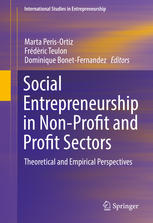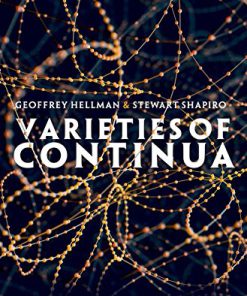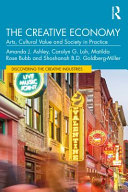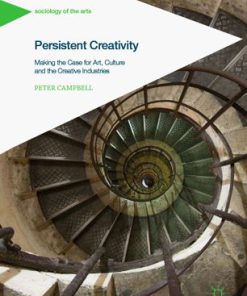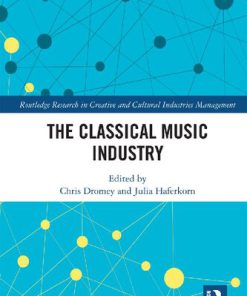Entrepreneurship in Culture and Creative Industries Perspectives from Companies and Regions 1st Edition by Elisa Innerhofer, Harald Pechlaner, Elena Borin ISBN 3319655051 9783319655062
$50.00 Original price was: $50.00.$25.00Current price is: $25.00.
Entrepreneurship in Culture and Creative Industries Perspectives from Companies and Regions 1st Edition by Elisa Innerhofer, Harald Pechlaner, Elena Borin – Ebook PDF Instant Download/Delivery: 3319655051, 9783319655062
Full download Entrepreneurship in Culture and Creative Industries Perspectives from Companies and Regions 1st Edition after payment
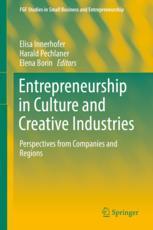
Product details:
ISBN 10: 3319655051
ISBN 13: 9783319655062
Author: Elisa Innerhofer, Harald Pechlaner, Elena Borin
This book explains and analyzes entrepreneurship and cultural management issues in the creative and cultural sectors and discusses the impacts of economic, social and structural changes on cultural entrepreneurship. The expert contributions investigate the role of cultural entrepreneurship in regional and destination management and development by presenting best practice examples. It offers various interdisciplinary approaches, including perspectives from the fields of entrepreneurship and management, regional and destination management and development, sociology, psychology, innovation as well as creative industries, and also features articles exploring cultural entrepreneurship on a corporate as well as on a spatial level – or in other words in regions and destinations.
Entrepreneurship in Culture and Creative Industries Perspectives from Companies and Regions 1st Table of contents:
1 Times of Change: The Impact on Creative Industries
2 About the Book: Content and Organization
2.1 Structure of the Book
References
Part I: Combining Creative Industries and Business Issues
Culture-Based Products: Integrating Cultural and Commercial Strategies
1 Introduction
2 Theoretical Background
3 Methods and Cases
4 Findings
5 Conclusions: Direction for Future Research
References
Entrepreneurial Behavior and Financing Structures in the German Creative Industries
1 Introducing the Issue
2 Theoretical Framework and Literature Review
2.1 Characteristics of the Cultural and Creative Industries
2.2 Aspects of Entrepreneurial Financial
3 Survey About Start-Ups and Growing Firms in German Cultural and Creative Industries
3.1 Sample of the Survey
3.2 Descriptive Statistics
3.2.1 Characteristics of the Entrepreneurs
3.2.2 Characteristics and Structures of the Organization
3.2.3 Capital Needs and Phases of Financing
4 Theoretical Framework Approach
4.1 Some Hypotheses About the Financing Structures
4.2 Some Hypotheses About the Choice of Financing Structures
4.3 Operationalization of Variables
4.4 Results
5 Conclusion: Discussion and Implications
References
Financial Sustainability of Small- and Medium-Sized Enterprises in the Cultural and Creative Sector:
1 Introduction
2 Theoretical Debate
3 Research Method
4 Results and Discussion
4.1 Result R1: Bank Finance-Insights on the Relationship Between Banks and Cultural Entrepreneurship
4.1.1 Form of Mediation
4.1.2 Nature of the Financial Contracts
4.2 Result R2: Determinants of the Credit Demand in Cultural Entrepreneurship
4.3 Result R3: Exploring the Reasons for Bank Finance Weakness in Cultural and Creative Enterprises
5 Concluding Remarks
References
Entrepreneurial Storytelling as Narrative Practice in Project and Organizational Development
1 Introduction: Organizational Practice as a Communicative Task
2 Theoretical Framework: Entrepreneurial Storytelling as an Interdisciplinary Phenomenon
2.1 Defining Entrepreneurship
2.2 Storytelling, Narrative and Entrepreneurship
2.3 Storytelling, Design and Entrepreneurship
3 Approach and Methods: Narrative and Discourse Analysis
4 Context of the Case Studies: Culture and Creative Industries
5 Key Findings: Entrepreneurial Storytelling as Narrative Practice
5.1 Entrepreneurial Narration
5.2 Entrepreneurial Design
5.3 Entrepreneurial Network
5.4 Entrepreneurial Story
5.5 Entrepreneurial Discourse
6 Discussion and Implications for Science and Organizational Practice
References
Journals and Articles
Books and Chapters
Online Documents
The Paradox Between Individual Professionalization and Dependence on Social Contexts and Professiona
1 On the Depending Relation Between Cultural Entrepreneurs and Their Scenes in Cultural and Creative
1.1 Culturepreneurs
1.2 Scenes
1.3 Professionalization and Its Paradoxes
1.4 Two Contrasting Cases: Berlin and Leipzig
1.5 Entrepreneurial Scenes in Leipzig
1.6 Spatial Practices of the Design and Art Scene
1.7 Entrepreneurial Scenes in Berlin
1.8 Variations and Types of Entrepreneurial Scenes in Leipzig and Berlin
References
Entrepreneurship in the Creative Industries
1 Introduction
2 Methods
3 Definitional Discourse
3.1 Creative Industries
3.2 Entrepreneurship
3.3 Entrepreneur
4 Contextual Conditions
5 Social Mechanisms
5.1 Individual-Cognitive Level
5.2 Action-Orientated Level
5.3 Collective Level
6 Outcome Patterns
7 Gaps and Inconsistencies
8 Particularities Matching Mechanisms
9 Setting the Research Agenda
9.1 Non-Entrepreneurial Passion
9.2 Identity-Related Motivation
9.3 Symbolic Value
9.4 Action and Planning
10 Conclusion
Appendix 1 Selected Entrepreneurship Studies in the Creative Industries
Appendix 2 Passion, Lifestyle, Bricolage and Symbolic Value in Current Entrepreneurship Research
References
Part II: The Value of Creative Industries for Change and Development
Entrepreneurial Education in Arts Universities: Facilitating the Change to the Entrepreneurial Minds
1 Introduction
2 The Essence of Change
3 Methodological Approach in Brief
4 Student Perspectives: What Do We Not See There?
5 Entrepreneurial Educators: To Question is to Fortify
6 EU Projects and Policy: Achieving What is Already Achieved?
7 Reflections on a Renewed Entrepreneurial Education Framework
8 Conclusion
References
Journals and Articles
Books and Chapters
Online Document
Interviews
The New Socio-Cultural Entrepreneurs
1 Defining the Framework
1.1 Different Forms of Entrepreneurship
1.1.1 Social Entrepreneurship
1.1.2 Arts and Cultural Entrepreneurship
1.1.3 Socio-Cultural Work
2 Working Hypothesis
3 Socio-Cultural Entrepreneurship
3.1 Defining Socio-Cultural Entrepreneurship
3.2 Case Study
4 Results
4.1 Identity of the Entrepreneur
4.2 Teaching What Entrepreneurship Means
4.3 Change the Awareness of Other Fields Like Engineers, Lawyers, Doctors
5 Conclusion
References
Journals and Articles
Books and Chapters
Online Document
From Edge to Engine
1 Introduction
2 Understanding the Creative Economy
2.1 Empirical Base
2.2 Selection of Cases
3 The Search for Evidence-Based Policy Development
4 Measuring and Defining Data
4.1 Measuring Success and Failure
5 Initial Policy Recommendations
5.1 Perceived Challenges
6 Five Years Later: 2013
6.1 Understanding the Creative Economy: Clearer Definitions
6.2 Evaluating the Impact and Meaning of the Creative Economy
6.3 Assessing the Results
7 Fostering Revised Policy Recommendations
7.1 Future Challenges
8 Conclusion
References
Cultural Entrepreneurship in the Context of Spillovers Within the Cultural and Creative Industries
1 Introduction
2 Cultural and Creative Industry Spillovers and the Role of Cultural Entrepreneurship in the Realiza
3 Knowledge Spillovers Through Design Interventions: Strategies and Practices of Cultural Entreprene
3.1 Background and Working Method of Costruire Bellezza
3.2 Research Methodology
3.3 Findings
3.3.1 Knowledge and Network Spillovers
3.3.2 Cultural Entrepreneurship and the Realization of Spillovers: Strategies
4 Conclusion
Annex
Box A Question Patterns of Face-to-Face Interviews with Cultural Entrepreneurs. Two of the Interview
References
Enhancing the Potential of Cultural Entrepreneurship: Connecting Regional Development and Performanc
1 Introduction and Literature Review
2 Data and Method
3 Results
4 Discussion and Conclusion
Reference
When Culture Meets Economy
1 Introduction
2 Regional Innovation Systems and Creative Industries
3 Case Study South Tyrol
3.1 Regional Innovation System in South Tyrol
3.2 Conclusions Regarding the Role of the Creative Industries in the District Bolzano Sud
References
Part III: Creative Industries in the Context of Regional and Destination Development
Cultural Entrepreneurship and Rural Development: Case Study of Pirot, Serbia
1 Introduction
2 Historical Overview of Cultural Entrepreneurship Development in Pirot
3 Data and Methodology
4 State and Characteristics of Cultural Entrepreneurship in Pirot
5 Conclusions
Appendix
References
Case Study: Don´t Say Street Art, Just Say Fanzara
1 Introduction
2 Literature Review
3 Description of Fanzara
4 How the Idea of MIAU Was Implemented
5 Organization During the MIAU
6 Selection of Artists
7 Three Years of Success
8 Conclusion
Referencess
On Line Reference List
Relevant Locational Factors for Creative Industries Startups
1 Starting Point and Objectives: The Attractiveness of Startups from the Creative Industries and Rel
2 Basis and State of the Art: Locational Factors in Startup Literature and in the Creative Industrie
3 Methodology and Approach: Quantitative and Qualitative Research and a Model with 28 Locational Fac
4 Results and Findings: Relevant Locational Factors for Startups in the Creative Industries and the
4.1 Locational Factors and Relevance Assessments for Startups in the Creative Industries
4.2 Changes Expected in the Importance of Individual Locational Factors in the Future
4.3 Assessment of the Strength of Locational Factors in the Region of Stuttgart
5 Discussion and Recommendations: Opportunities and Challenges for the Stuttgart Region as Seen by S
5.1 Sustainable Startups in a Positive Economic Situation: Smart Selection
5.2 Network of All Stakeholders Combined with Local Patriotism: Smart Connection
5.3 Intelligently Linking Support Options: Smart Capital
5.4 Startups, Art, Media and Strong Business Partners for a Unique Profile: Smart Culture
6 Conclusions and Limitations: Implications for Research and Practice and the Stuttgart Region
6.1 General Implications for Research and Practice
6.2 Implications for Stuttgart
References
Managing a World Heritage Site in Italy as Janus Bifrons: A “Decentralized Centralization´´ Betwe
1 Introduction and Theoretical Background
2 Research Context
2.1 Public Reforms and Italian Cultural Heritage System: From 1939 to 2007
2.2 The Archaeological and Historical Site of Aquileia: An Institutional History and Three Steps Tow
3 Methodology
4 Findings
4.1 A Variety of Discourses: Managing the Aquileia WHS
4.2 Effectiveness
4.3 Efficiency
4.4 A Summary: Dynamics Between Substantive and Procedural Aspects
5 Discussion and Concluding Remarks
5.1 Materiality, Sources of Conflict and Cross-Disciplinary Collaboration
5.2 Unmanaged Complexity Between Professional Control and Accountability: Concluding Remarks
References
Creative Entrepreneurship in No Man´s Land: Challenges and Prospects for a Metropolitan Area and Sm
1 Context
2 Creative and Cultural Entrepreneurship: Theoretical Background
3 The Story of Savamala
4 Mikser
5 Nova Iskra
6 Creative Mentorship
7 Conclusions
8 Challenges and Perspectives
References
Books and Chapters
Online Document
Organization Site
Experience-Driven Cultural Entrepreneurship: Business Models and Regional Development in the “World
1 Introduction
2 Research Methodology
3 Typology of Heritage Experiences
3.1 The First Amazement
3.2 The Experience of Time
3.3 The Immersive Experience
3.4 The Haptic Experience
3.5 The Visual Experience
4 Community Involvement and “Heripreneurship´´
5 Conclusion
References
Urban Creative and Cultural Entrepreneurs: A Closer Look at Cultural Quarters and the Creative Clust
1 Introduction
2 Urban Cultural and Creative Clusters: Theoretical Background
3 The Methodological Approach and Empirical Study
3.1 Presentation of the “Quartier de la Création´´ Evolution
3.2 Genesis of the Quartier de la Création: Late-80s to 2010
4 Analysis: Discussion
4.1 An In Vivo Experiment Nurturing Informal Knowledge Network and Cooperative Practices
4.2 The Duplication Attempt in an Institutional Context
4.3 Different Key Actors and Their Roles in the Governance Practice
5 Conclusion: Managerial Implications and Research Perspectives
People also search for Entrepreneurship in Culture and Creative Industries Perspectives from Companies and Regions 1st:
entrepreneurship in culture and creative industries
culture and commerce the value of entrepreneurship in creative industries
cultural and creative industries examples
what is cultural and creative industries
creativity in entrepreneurship example
Tags:
Elisa Innerhofer,Harald Pechlaner,Elena Borin,Entrepreneurship,Culture,Industries Perspectives,Companies,Regions
You may also like…
Politics & Philosophy
Business & Economics - Economics
Politics & Philosophy - Social Sciences
Arts - History & Criticism
Politics & Philosophy - Politics
Tax Incentives for the Creative Industries 1st Edition Sigrid 9812878327 9789812878328
Politics & Philosophy




